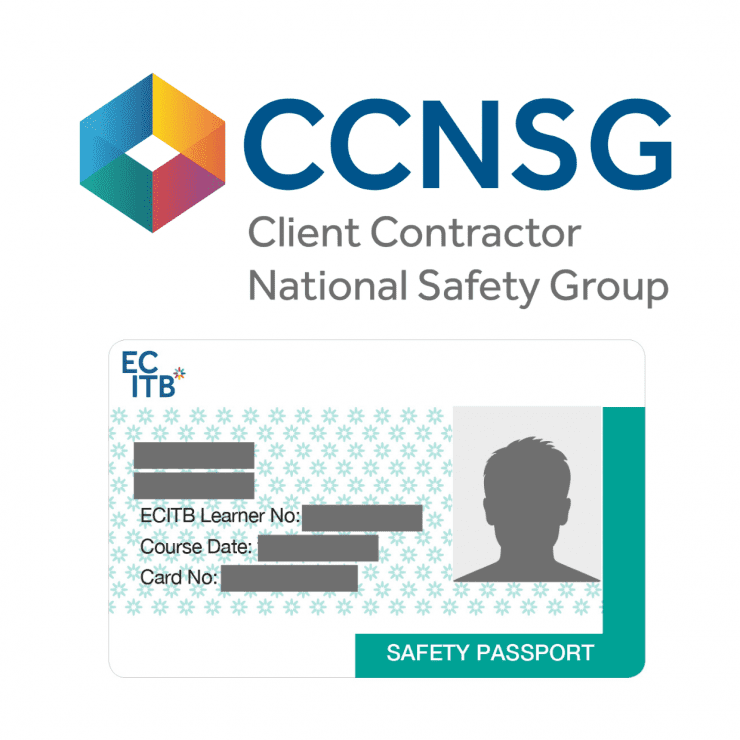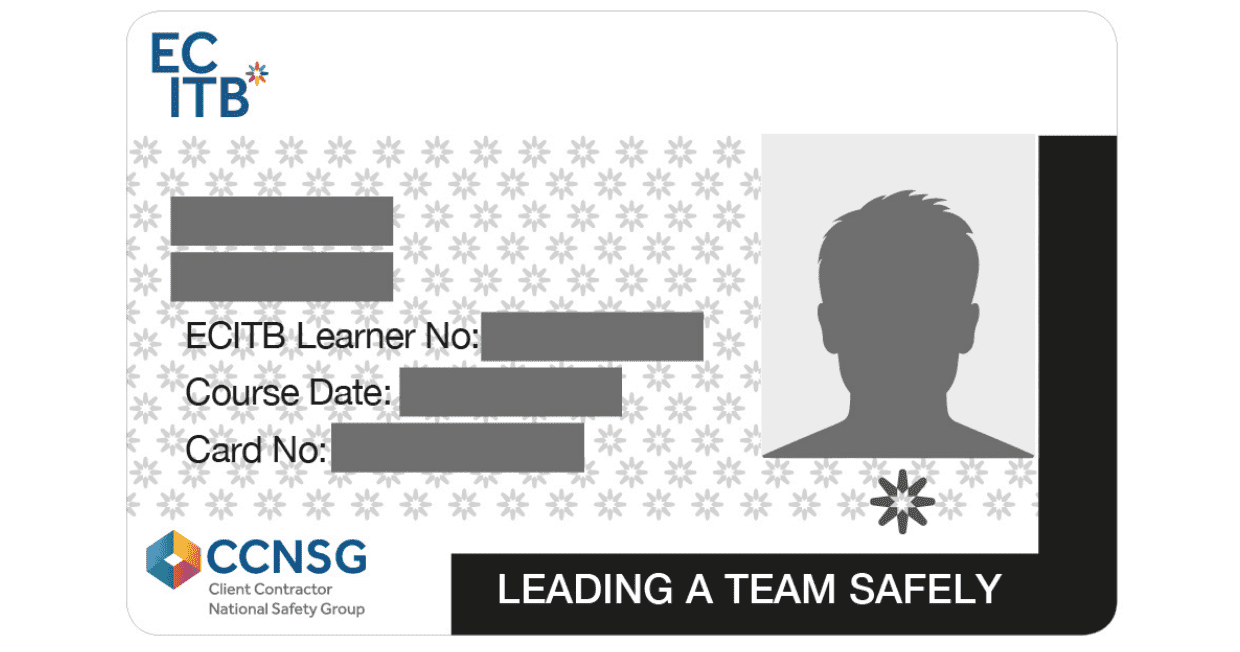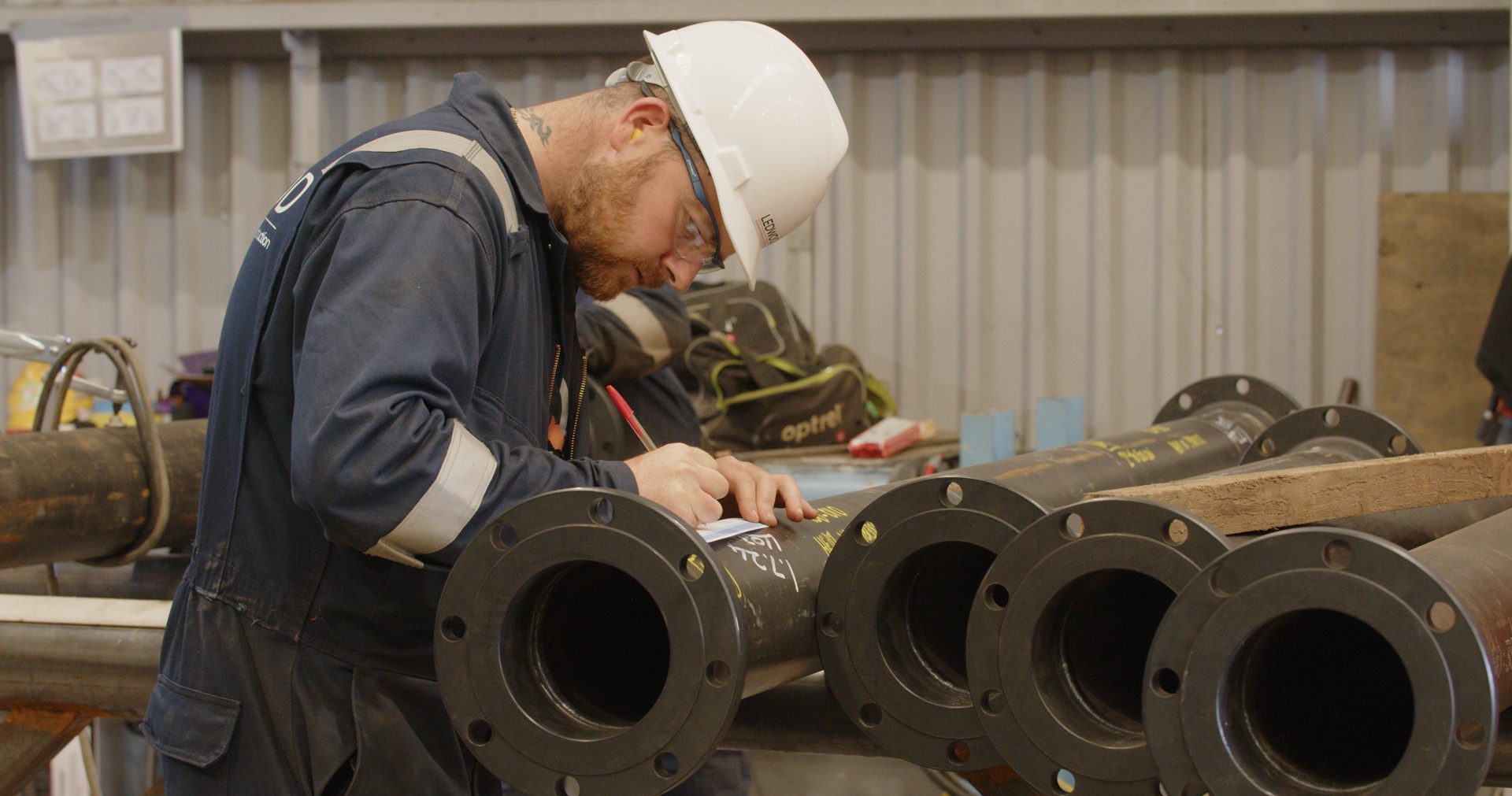CCNSG – the go-to site safety passport for the engineering construction industry
CCNSG course provides enhanced health and safety awareness.
ECITB quality-assured delivery process.
Helps reduce accidents and lost-time incidents on sites.
Suitable for all members of the workforce.
More than one million cards issued to date.
Around 30,000 workers complete the CCNSG course each year.
80 Approved Training Providers delivering the CCNSG course in the UK.
International version of the CCNSG course transferable between countries.
What is the CCNSG Safety Passport?
All work exposes people to hazards, this is especially true for the engineering construction industry (ECI). That’s why it is imperative everyone working on site is correctly trained.
Health and safety training helps develop a positive health and safety culture and is one of the key contributors in reducing accidents and lost-time incidents on sites.
Suitable for all workers in the industry, the Engineering Construction Industry Training Board’s (ECITB) quality-assured CCNSG Safety Passport scheme is a two-day course that gives delegates enhanced health and safety awareness.
The CCNSG course is delivered through face-to-face training, delegate discussion and shared experience, followed by a knowledge test.
On completion, successful candidates receive a CCNSG card, which is valid for three years. Holding a valid CCNSG card is often a pre-requisite for workers entering ECI sites, which is why workers need to renew their cards before they expire.
How to get a CCNSG card
Around 100 ECITB safety passports, on average, are issued every day, ensuring workers have the underlying fundamental health and safety training they need to keep themselves and their colleagues safe on site.
The CCNSG course is delivered across the UK by a network of 80 ECITB Approved Training Providers.
Find a CCNSG training providerTop tips for creating a better safety culture in the engineering construction industry
Find out more about how to stay safe in industry
CCNSG Safety Passport: By industry, for industry
Since it was launched in 1993, the CCNSG course has evolved to ensure it continues to meet the needs of industry, with the eighth version launched in August 2023.
CCNSG has delivered industry-leading safety training for more than 30 years because it has been created and is overseen by industry, for industry.
Originally the course was called SCATS, not CCNSG. It was created in Pembrokeshire so that all of the local businesses who used the same contractors could reduce their induction time.
The course worked so well that businesses in Newcastle and Merseyside also wanted to adopt it. There was concern that this would result in multiple different schemes across the country with no standardisation. So the original author approached the national awarding bodies to see if they would take the course and run it as a national scheme.
That is when the ECITB, the industry-led skills body for the engineering construction industry (ECI), got involved and launched it as the CCNSG (Client Contractor National Safety Group), which has been the go-to safety card for the ECI ever since.
The programme is industry-led through the CCNSG Committee, which comprises representatives from across the industry who meet four times a year to advise on the content and delivery of the scheme.
Alongside being overseen by the committee, the CCNSG is quality assured by a rigorous auditing process the ECITB carries out with its network of Approved Training Providers.
Don’t take our word for it - why employers value the CCNSG Safety Passport
Hear the views of employers on why the CCNSG Safety Passport remains the go-to safety card for the engineering construction industry.
What topics are covered in the CCNSG course?
Health and safety legislation, regulations and safe working practices and procedures
- Relevant health and safety legislation including the responsibilities of clients/site operators, employers and employees.
- Approved codes of practice.
- Role of the Health and Safety Executive (HSE).
- Sources of health and safety information.
- Who is responsible for the health and safety of people working on a site.
- The consequences for employers and employees of not fulfilling their legal health and safety responsibilities.
- The purpose and nature of risk assessments, method statements and permit-to-work systems, and the relevance of local procedures and safe systems of work.
Safe use of tools and equipment in different working environments
- Hazards and risks.
- Fire safety procedures.
- Manual handling.
- Dangers of slips, trips and falls.
- Working at height.
- Working with tools and equipment, noisy environments, vibrating equipment.
- Confined space / excavations working.
- Hazardous substances.
- Lifting operations.
- Dangers of asbestos / radiation.
- Site traffic.
- Types of signs and warnings.
- Electricity and portable electrical appliances / stored energy devices.
- Environmental issues.
Safe working practices and safe solutions to emergencies
- Personal Protective Equipment.
- Incident reporting procedures.
- Reporting lines and procedures.
- Importance of training.
Personal site safety responsibilities
- Safety first attitudes.
- Personal behaviour.
- Introduction to mental health and equality issues.
- Minimising the risks from different hazards.
Other ECITB safety passport courses
CCNSG FAQs
What does CCNSG stand for?
Client Contractor National Safety Group.
What is the difference between a CITB Health, Safety and Environment (HS&E) card and the CCNSG Safety Passport?
The CCNSG Safety Passport is a two-day training course. After sitting a test at the end of the course, successful candidates can then access engineering construction sites.
In contrast, the CITB test is for the construction industry, which has different health and safety requirements for working on sites.
Do I have to renew my card before the expiry date?
A CCNSG Safety Passport expires after three years from the date of issue.
If candidates don’t take the Renewal Course or Test-only for Renewal option before their card expires, they must re-sit the two-day national course. Find out more: CCNSG Renewal
Can I obtain a grant for the CCNSG course?
Unfortunately not, the ECITB does not offer grants for the CCNSG Safety Passport. However, your employer or local job centre may be able to assist you with costs.
Where do I go for CCNSG training?
The CCNSG courses (national, renewal and Leading a Team Safely) can only be run by an ECITB Approved Training Provider. Individuals can contact the training provider with whom they successfully completed the CCNSG course for renewal. If they no longer deliver this training, then you can search for another CCNSG training provider near you.
What if I have lost my CCNSG card?
If you have lost your CCNSG Safety Passport, please contact the ECITB on email: safetypassport@ecitb.org.uk
CCNSG in the news
Sign up for updates
Your information will be used to subscribe you to our e-newsletter.
For more information, please see our Privacy Notice.


















